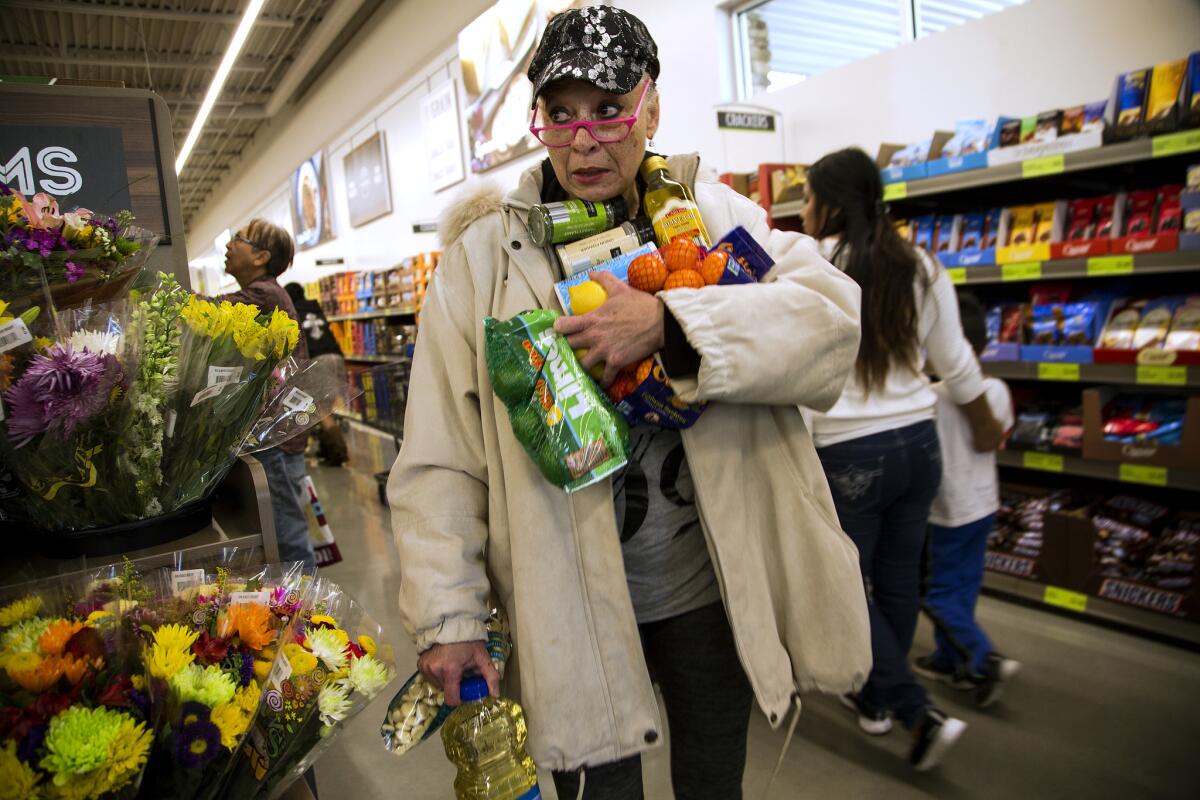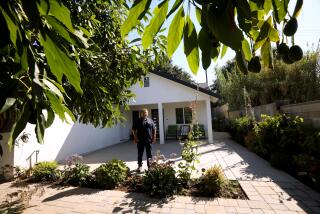Aldi to open six stores in Los Angeles County among 10 new stores

Janelle Myers of Riverside searches for her shopping basket with her arms filled with groceries during the grand opening of Aldi food market in Moreno Valley in March.
German discount grocer Aldi is opening another 10 stores in Southern California on Thursday, including its first six locations in Los Angeles County.
Aldi will have stores in Arcadia, Cerritos, Covina, Inglewood, La Verne and Palmdale.
It is also expanding into Orange County, where its first stores there will be in Anaheim, Buena Park and Fountain Valley.
The 10th new store will be in San Bernardino.
Last month Aldi opened its first eight Southland stores, the first wave of 45 slated to open in the region this year.
Although Aldi is a newcomer to the area, the family behind the chain already has grocery ties to Southern California: Aldi is controlled by the Albrecht family in Germany; through a family trust, the Albrechts also own Monrovia-based Trader Joe’s.
In coming to Southern California, Aldi is venturing into one of the most ferociously competitive grocery markets in the country.
Gelson’s, Bristol Farms and Trader Joe’s are local favorites. Dozens of farmers markets dot the region. Retail giants Wal-Mart Stores Inc. and Target Corp. have bulked up their grocery options, while huge online players Google and Amazon.com are expanding grocery delivery.
Compared with traditional supermarkets, Aldi offers a unique shopping experience and product lineup that stands out from stalwarts like Ralphs and Albertsons.
Its stores are around 15,000 square feet, compared with supermarkets that can be five times bigger. More than 90% of its products are private label, and each location carries a limited assortment of products, offering only one or two options for eggs or peanut butter.
To save on labor costs, customers also have to bag their own groceries (each store employs about 19 workers, on average, compared with dozens at a big supermarket). Using a shopping cart requires a 25-cent deposit, which is given back when the cart is returned; the system cuts down on stolen carts and reduces clutter in the parking lots. Bestselling products are often displayed on shipping pallets, instead of stacked on shelves.
Those kinds of savings translate into lower prices: Many of Aldi’s products cost 20% to 50% less than rivals’ items.
Follow Shan Li on Twitter @ByShanLi
ALSO
In sophisticated shell game, thieves hit Central Valley nut growers
Taxi-for-kids service Shuddle plans to close, citing fundraising challenges
Texting-friendly theaters could ‘seriously hurt’ industry, Alamo Drafthouse founder says
More to Read
Inside the business of entertainment
The Wide Shot brings you news, analysis and insights on everything from streaming wars to production — and what it all means for the future.
You may occasionally receive promotional content from the Los Angeles Times.











